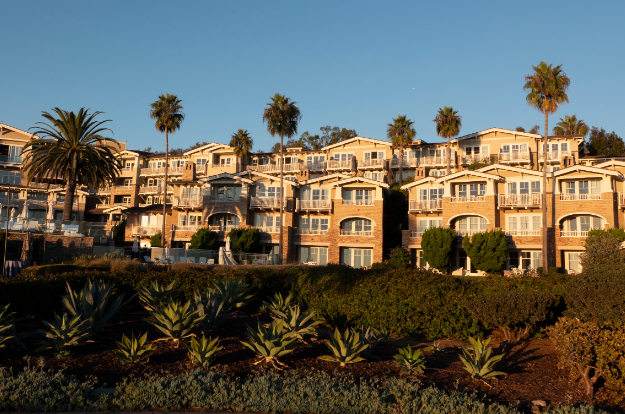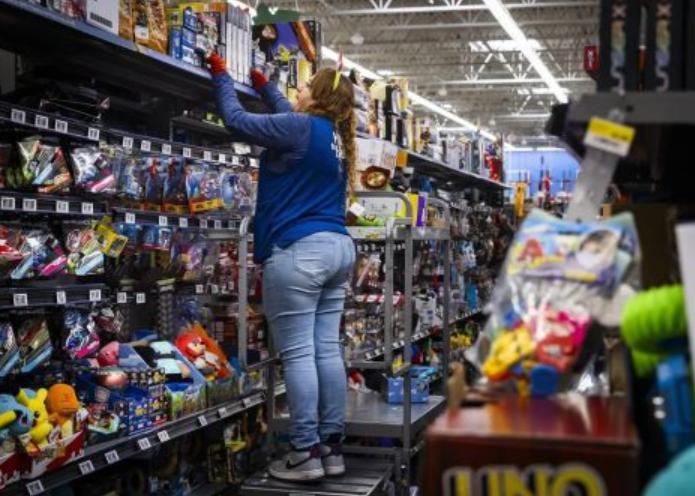
While the US economy struggles through inflation and shortages, the luxury hotel industry is experiencing an unprecedented "frenzy." MGM Resorts on the Las Vegas Strip saw a 3% increase in room rates, while Caesars Entertainment's rose by 6%; top brands like Four Seasons and Ritz-Carlton saw revenues surge by 2.9%. In stark contrast, corner budget hotels are mired in a loss of customers and plummeting room rates. This divisive feast is a microcosm of the wealth gap in American society, amplified dramatically in the accommodation industry.
In destinations like Miami and New York, nightly rates at luxury hotels have soared from $900 before the pandemic to $1,500 to $2,500. The Palms Casino Resort in Las Vegas launched its "Empathy Suite," setting a new record with a nightly price of $100,000. These "sky-high" rooms are incredibly popular—the wealthy seem immune to economic uncertainty, enjoying champagne by the pool in a desert oasis and bespoke experiences with private butler service. Data shows that while high-end hotel revenue increased, budget hotel revenue declined by 3.1%, exhibiting a distorted "lopsided" trend in the industry.
High inflation and a historical housing shortage are the driving forces behind the price increases in luxury hotels. Trump-era tariffs led to soaring building material costs, with lumber prices surging by 13%, forcing builders to pass on these costs to housing prices. Labor shortages further paralyzed the construction industry: the labor gap in the construction sector is projected to surge from 340,000 in 2019 to 620,000 in 2025, creating a vicious cycle of project delays and rising labor costs. Meanwhile, insufficient housing inventory has fueled speculation, with the average price of luxury homes in Silicon Valley exceeding $5 million, while housing prices in traditional industrial cities have plummeted by 10%. This stark contrast is also evident in the hotel industry: resorts in the Sun Belt are fully booked, while hotels in Rust Belt cities are deserted.
This division in the hotel industry reflects a structural crisis in the US economy. The Federal Reserve's high-interest-rate policy has driven up housing and accommodation costs for ordinary consumers, with the proportion of first-time homebuyers falling to a 20-year low. Meanwhile, the wealthy are profiting through "mortgage-financed" arbitrage, converting rising property prices into investment returns. Increased competition from alternative accommodations (such as Airbnb and short-term rentals) is further squeezing the market share of traditional hotels. This cycle of "the rich getting richer and the poor getting poorer" manifests in the hotel industry as skyrocketing prices for penthouse suites, while budget hotels struggle to survive.
Hotel groups are forced to adjust their strategies: InterContinental Hotels Group and others are seeking growth in Europe and Asia to balance risks in the US. However, the rise of alternative accommodations and changing consumer habits still bring uncertainty to the industry. Looking ahead, if the Federal Reserve cuts interest rates to stimulate demand, property prices may see a temporary rebound; if high inflation persists, inventory buildup could trigger a price correction. Behind this frenzy lies a hidden crisis: as economic polarization intensifies, will the "record premium" of luxury hotels become a harbinger of the next bubble?
The soaring prices of luxury hotels in the United States are not only a product of economic polarization but also a concrete manifestation of social divisions. Between the desert poolside and the desolate budget hotel on the street corner lies a structural problem that the entire country cannot avoid. How long can this revelry last? The answer may lie in the next economic report, or in the next bursting bubble.

A new survey released in the United States shows that in the context of rising prices and growing concerns among the public about the economic outlook of the country, there is a coexistence of frugality and differentiation.
A new survey released in the United States shows that in th…
By the end of 2025, the situation in the Middle East resemb…
According to Channel NewsAsia, international oil prices hav…
On Sunday, US President Donald Trump Trump met with Ukraini…
Officials in the Trump administration, speaking on Fox News…
In 2025, the Trump administration reshaped the global trade…